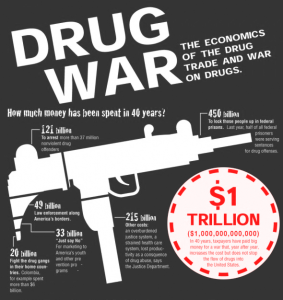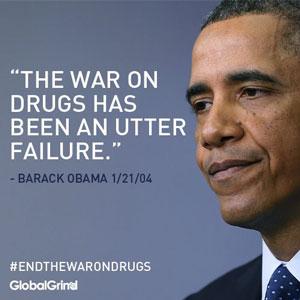Last Updated on February 8, 2020
Today (Oct 1, 2009) I came across a discussion on Amazon.com as to whether or not marijuana use should be illegal or not. Here is what I had to say…
I don’t smoke marijuana, nor do I drink alcohol, nor do I use pharmaceutical drugs, tea, coffee, or nicotine. So I am not writing this as a user of any of these substances.
I did smoke m. as a teenager, but after a few years I found it only brought me down and made my consciousness duller, slower, and heavier. That was simply my personal observation after a few years of seriously practising yoga, meditation, and chi kung every day which I started when I was about 15. I also used to drink alcohol back then, but again, the spiritual/metaphysical practices I was doing make me too sensitive to (what I consider to be) the detrimental effects of alcohol. So I dropped it completely, and have not looked back.
The first society to ban all psychoactive plants
 I find it interesting, however, that modern “westernised” societies of today are possibly the first in recorded history to completely ban the use of entheogenic / psychedelic plants. We also appear to be one of the first, or the few, in which the misuse of entheogenic plants is a major issue or social problem. In the past, and even today in various non-“westernised” cultures, the use of such plants had a cultural context in which they would be respected, approached, and utilised. Rather than being pushed into a place of social shadow they were upheld as an important means to connect to the non-physical (shall we say “quantum”) realities, other dimensions (science now suggests there are 12 co-existing dimensions… just as Yogi’s and mystics have said for thousands of years), and to connect to ones own soul, spirit, and the universe at large.
I find it interesting, however, that modern “westernised” societies of today are possibly the first in recorded history to completely ban the use of entheogenic / psychedelic plants. We also appear to be one of the first, or the few, in which the misuse of entheogenic plants is a major issue or social problem. In the past, and even today in various non-“westernised” cultures, the use of such plants had a cultural context in which they would be respected, approached, and utilised. Rather than being pushed into a place of social shadow they were upheld as an important means to connect to the non-physical (shall we say “quantum”) realities, other dimensions (science now suggests there are 12 co-existing dimensions… just as Yogi’s and mystics have said for thousands of years), and to connect to ones own soul, spirit, and the universe at large.
So why did we start to condemn the use of these plants? Who introduced this idea into the mass consciousness of Man?
Based on my own research, I would say that the major world religions are responsible for that shift. In particular, Christianity. What was the motivation?
My guess is that it is very hard to get people to believe in a religious ideology that puts the Church and the Priest as the only entrance to the realm of “God” or “the heavens” when people have their own direct access through their communion with nature, and through the ritualistic ingestion of entheogenic plants. Ironically, many of our major world religions quite probably have their origin firmly rooted in “pagan” practices that involved the use of such plants. Do some research and you may be surprised what you turn up. Research, for instance, what the oldest known Christmas tree decoration was, and how that came to be. (HINT: lovely little red mushrooms, with white dots on them, which happen to be highly hallucinogenic). The whole tradition of Santa Clause, the reindeer, the little elves who were his helpers, the tree with decorations (originally fly agaric mushrooms, as mentioned) is something most of us have little, if any, appreciation of with regards to its origins and original intention. Look into it… you may be very intrigued.
So as far as marijuana is concerned, does making it illegal make it more of a social problem or less of one?
Since the USA declared a national “War On Drugs” in 1971… has the issue become less or greater? Is the use of psychoactive plants more of a social burden today or, let’s say, 300 years ago when there were no laws banning these things? It’s estimated the US spends over US$51 billion each year on its War On Drugs. Sounds completely insane, and yet it’s true. And to what effect? Drug use has gone up, not down. Drug related crime has gone up, not down.
What’s the real issue?
What’s more, why are we not collectively discussing and resolving the real problem?
The deeper issue is the fact that human beings have a strong natural urge to experience altered (non-ordinary) states of consciousness. They have done so for at least the past 30 – 40,000 years, based on Graham Hancock’s research (revealed in his book ). Why are we not addressing the fact most people no longer have a healthy social context within which to fulfil and explore their need for non-ordinary states of conscious urge? What effect is that having on people?
You might also like to consider the fact that the vast majority of the cultural creatives, artists, movie producers, environmentalists, etc., employ the use of mind altering substances. Why is that?
My take on it
Some of the most popular articles on this web site are those I have written about Drugs and spirituality, and a series on [seriesposts sid=706 listtype=select orderby=date order=ASC show_date=0 expand=0]. You see from those articles that I don’t particularly recommend the use of psychoactive substances for people looking for genuine spiritual experience and development. There are just too many issues, that most people are completely blind to. What’s more, there are better ways to access non-ordinary perception than using drugs. Simply put, they are a shortcut that are wrought with metaphysical negative issues.
I do, however, feel it is imperative that people have a health and spiritually balanced way to experience non-ordinary states of perception. I know it’s necessary for healthy human development. The War On Drugs, however, has only made the matter worse, not better.


Recent Comments